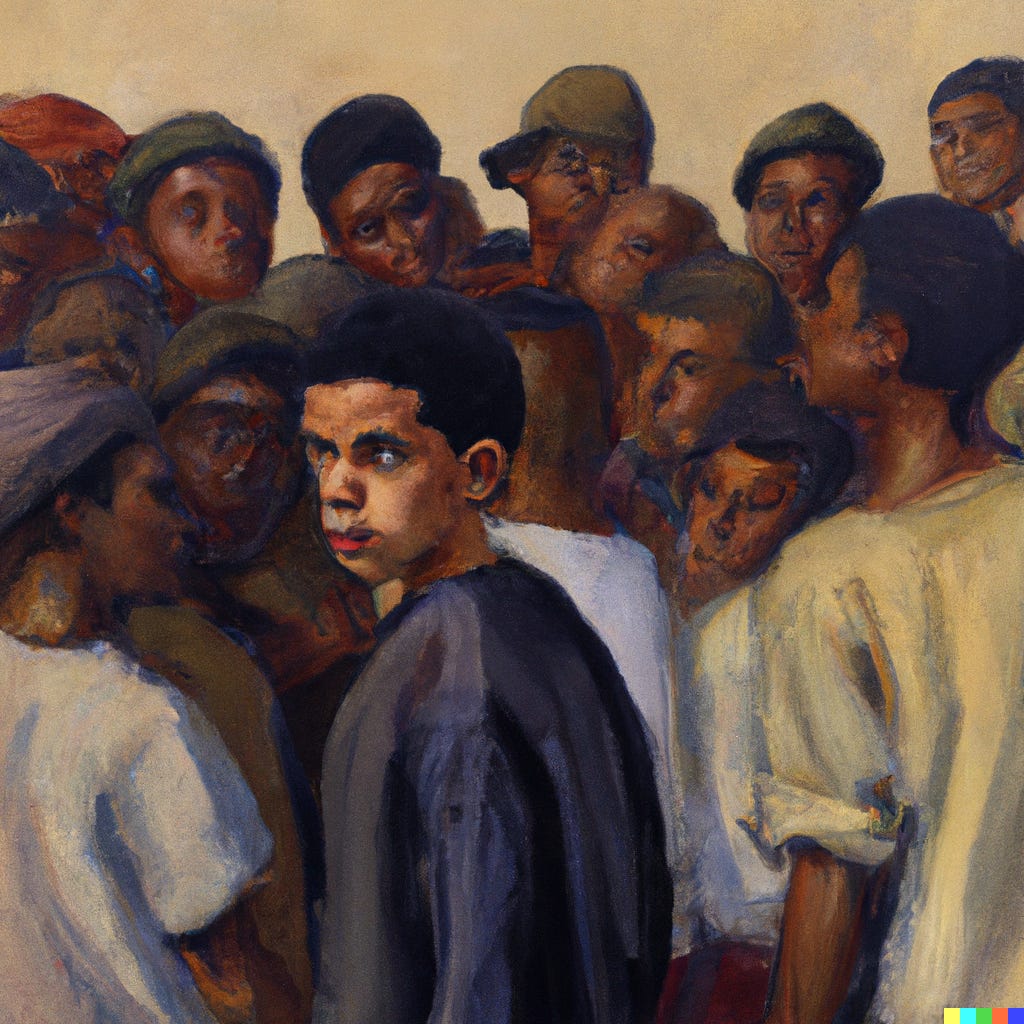Don't Do What's Expected
ST55: Seven Things on why you should be a serial quitter, AI-powered creative tools and more
Hello friends!
I’m just on my way home from WebSummit Lisbon, my head still buzzing from all that I’ve seen and heard. Lots of it will trickle into future Seven Things or onto my website. For now, I wanted to share:
One — A story about why not doing what’s expected is often for the best.
Two — Seven Things on why you should be a serial quitter, how to get ahead at work, AI-powered creative tools and more.
1. Not doing what’s expected
We’re all short on time. Yet many of us opt to spend a large chunk of it in unenjoyable ways. I’m not talking about household chores and admin tasks. Those simply need doing. I’m referring to activities we volunteer to fill our already limited time with - both at work and as part of our social lives - even though we wouldn’t have to. One reason we do this is perceived pressure from others.
When a family member suffering from social anxiety told me about her dread of an upcoming weekend trip with a large friendship group, she hadn’t even considered simply not going until I suggested this option. Her sigh of relief was audible as she notified the group she wouldn’t join the trip. To nobody’s surprise, she’s still friends with all of them.
In the workplace, I’ve made the mistake of doing what I felt would please others far too often. Worse still, whenever I think of a situation that culminated in disaster, it frequently started with me saying yes to requests from more senior colleagues, even though I lacked the passion and sometimes the professional toolkit to follow through.
Whether it’s a social event you feel pressured into attending, or an unpalatable professional ask you hope to benefit from in the future, it is worth considering the costs and risks that come with defaulting to saying yes:
First, there’s the opportunity cost. You could have used that time on things that are more aligned with your personal desires and aptitudes.
You will also likely not see the benefits you were hoping for either. If you’re not having a good time at that get-together, others will pick up on that. If you’re working on something you are not interested in, you probably won’t deliver your A-game.
Lastly, the repercussions for saying no might be much less dramatic than you imagine. Be it friends or managers: usually, they won’t hold a grudge if you let them know you’re not up for whatever they asked you for. They have a million other things on their mind (as do you) and will have forgotten about that rejection the next time they unlock their phone. This is especially true if you excel at everything else you’re doing or if you can connect them with someone better suited than yourself.
The moral of these stories isn’t to be a Scrooge and say no to everything (even though that’s frequently the right course of action). Instead, it is to reflect on what gives you energy before giving in to external pressures or defaults of going with the flow. What would you really love to spend your time on?
When have you found it tough to say no to someone? What were the consequences and what did you learn from it? Saying no is one of those pesky things that sound good in theory, but are hard to do until they become the socially accepted and broadly shared practice. We can all help each other by showing a little vulnerability and sharing our personal stories. Please share them in a comment. Though, should your answer be a no, I won’t hold it against you.
/// Image: Dall·E generated art “A man anxiously standing amidst a group of friends in the style of Pierre Auguste Cot”
2. Seven Things I thought were worth sharing
Personal Growth: Why you should be a serial-quitter and feel good about trying new things
Creator Showcase: Dreamy illustrations by Endless Takeout
Tech/Mental Health: I got to put my hands on Soleil, a stunningly designed and playful mental health app. It felt a bit like Monument Valley for self-love. It’s not launched yet but worth signing up for to get notified when it’s out.
Career: A compelling TED talk on “How to find the person who can help you get ahead at work” by Carla Harris
Tool/AI: DreamStudio is an open-source AI image-generation tool
Sustainability: CarbonMapper uses satellite data to monitor global greenhouse gas emissions in real-time using a newly launched fleet of microsatellites from Planet
Book: Homegoing is a beautiful, and at times gut-wrenching read I couldn’t put down. It traces the stories of the descendants of two half-sisters born in 18th-century Ghana - one of whom was enslaved while the other was not.


This is brilliant. Applies to relationships outside of work too.